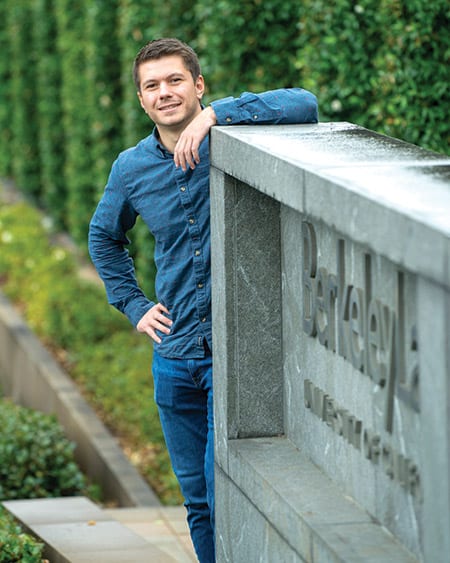
When 2L Zach Meeker decided to apply to law school—working for Fortune 150 company Arrow Electronics as a global transportation analyst— he planned to study corporate law. During the application process, however, the idea of specializing in Indian law gained momentum.
“I was fortunate enough to speak with amazing faculty and students in Indian law programs who really inspired me,” says Meeker, a member of the Choctaw Nation of Oklahoma.
He gravitated to Berkeley, which he says allowed “greater flexibility in curriculum as well as access to incredible faculty. Students can get involved in things they care about through pro-bono projects as early as their first semester.”
Last year, Meeker learned about sensitive legal issues facing Northern California tribes while advocating for the Karuk-Berkeley Collaborative, a former student-led initiative that aimed “to enhance the eco-cultural revitalization” of Karuk tribal members and their land.
Wanting to gain experience in Indian Country, Meeker was a judicial extern last summer at the Eastern Band of Cherokee Indians Court. He conducted legal research, wrote legal memos, drafted motions, and observed courtroom proceedings.
“My experience was unique in that I had the privilege of working under multiple judges and observing tribal council meetings,” says Meeker, a Berkeley Center for Law and Business Scholar, California Law Review associate editor, and recipient of Berkeley Law’s Prosser Prize in Torts last year. “One day I would be working on a discovery issue, the next an election matter for the Supreme Court, and the next an economic development initiative.”
His research and recommendations were incorporated into a decision that found a tribal member had a right to a speedy trial. “It gave me a sense that I was contributing to and shaping a growing body of jurisprudence,” Meeker says.
Now, as treasurer of Berkeley’s Native American Law Students Association chapter and co-leader of the new Native American Legal Assistance Project, Meeker showcases ways students can pursue opportunities in federal Indian law while also helping the school increase its Native American applicant pool.
Meeting this goal, he says, will require “recruiting more faculty who are working on Native issues, creating a center dedicated to this type of work, and inventing more opportunities for students to pursue internships like I had.”
—Kim Westerman